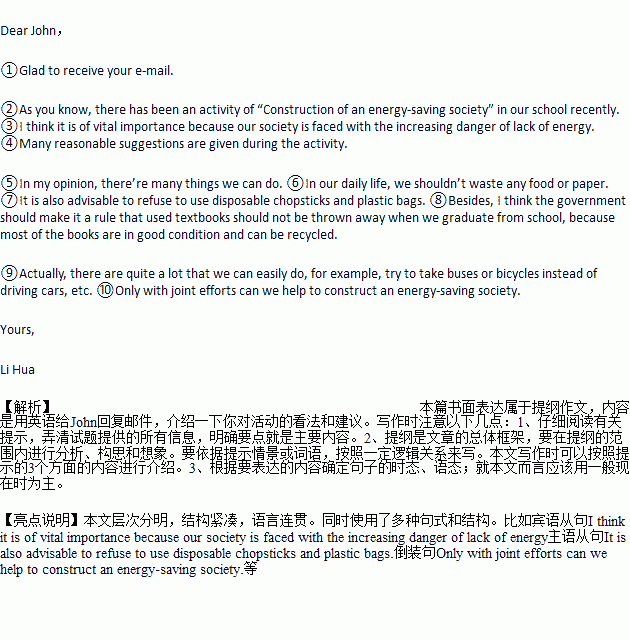题目内容
假设你是一中学生李华。近日,你的英语笔友John听说你们学校正在开展“建设节约型社会(Construction of an energy-saving society)”主题活动,发来邮件请你介绍一下你对活动的看法和建议。请你结合以下要点,用英语给John回复邮件。
1.不浪费粮食和纸张;
2.尽量不使用方便筷(disposable chopsticks)、塑料袋;
3.毕业生将书赠给低年级同学循环使用;
4.其他建议(如绿色出行等)
5.只有我们共同努力……
注意:
1. 不要逐字翻译,可适当增加细节;
2. 词数:120左右。开头已经为你写好,不计入总词数;
Dear John,
Glad to receive your E-mail.
____________________________________________________________________________________________
____________________________________________________________________________________________
____________________________________________________________________________________________
____________________________________________________________________________________________
____________________________________________________________________________________________
____________________________________________________________________________________________
_________________________________________________________________________________
Yours,
Li Hua
 名师指导期末冲刺卷系列答案
名师指导期末冲刺卷系列答案
